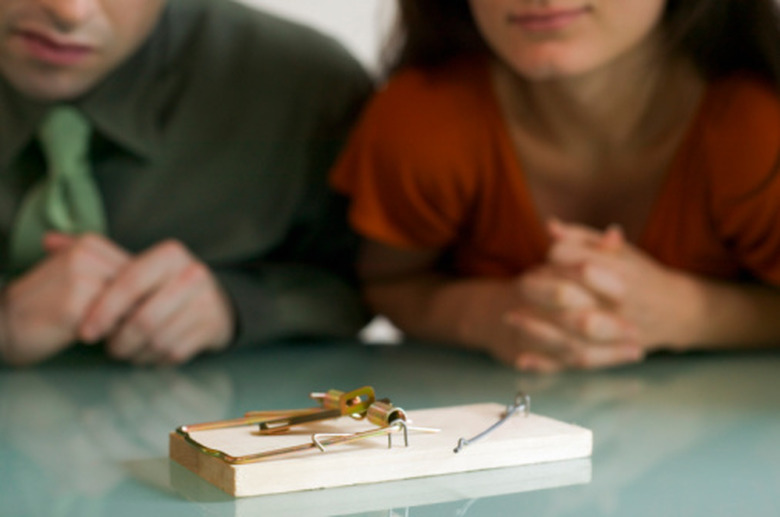Rube Goldberg Science Project Ideas
Rube Goldberg was a Pulitzer Prize-winning cartoonist and engineer. He became famous for creating cartoons of machines that used an extraordinary string of events to accomplish a single task. Rube Goldberg projects are popular among high school and college students and hobbyists who love physics. Students will study the laws of physics, learning about the seven simple machines while creating their own Rube Goldberg science projects.
Hand-Drawn Project
Hand-Drawn Project
Draw your own cartoon version of a Rube Goldberg project. The "New World" Dictionary defines Rube Goldberg as "designating any very complicated invention, machine, scheme, etc. laboriously contrived to perform a seemingly simple operation." Drawing an imaginary project gives you license to imagine what you want to happen and not what actually would happen should you build the project. Rube Goldberg became famous for his drawings of imaginary machines that he never built.
Starting Point and Ending Point Project
Starting Point and Ending Point Project
Design a Rube Goldberg project with a specific start point and ending point. Teachers give the students the first item they will use in their project and the ending goal. For example, you could indicate that the project must start with a marble and end by popping a water balloon. Another example would be to instruct students to begin the project with a toy car, go through 5 steps in the middle and end with 100 dominoes falling over. Rube Goldberg always had a starting point of his machine and an ending goal in mind.
Build a Machine
Build a Machine
Have the students plan and build their own Rube Goldberg machine. Each student or group of students should keep a notebook or journal of the project. Have them record the parameters and rules of the project, make notes from their brainstorming and record the idea of the project. Draw pictures of the idea. A written outline of the entire process and what is supposed to happen could be turned in before the project is actually built. After the teacher reviews the project, the student or students can begin building it. Have the students perform their project in class, giving several attempts should it fail on the first try.
Physics and Seven Simple Machines
Physics and Seven Simple Machines
The fundamentals of Rube Goldberg projects are based on the seven simple machines, which are: levers, pulleys, wheels and axles, inclined planes (ramp), screws and wedges. Give examples of each type of machine and what it does. Have the students determine which type of machine each of the following items are: a ruler, a PVC pipe, a racetrack, a clothes pin, a mouse trap, a small car, a ball and scissors. A Rube Goldberg project will usually start with the simple law of gravity with a ball or a toy car rolling down a track or a pipe. As the ball picks up speed, it uses kinetic energy and then transfers it into other types of energy used in the project such as chemical, electric and thermal.
Set Parameters for the Project
Set Parameters for the Project
Set the parameters of the Rube Goldberg science project such as how many steps need to be included and which of the simple machines should be used. Specify how many different types of objects need to be used to accomplish the project. The project should not include any animals or hazardous materials and should be safe. Set a time frame; for example, how long the project should last from start to finish. Specify a starting and ending point requirement, such as that it must start with a mousetrap or must end with popping a balloon.
Rube Goldberg Videos
Rube Goldberg Videos
Rube Goldberg projects are all over the Internet. For example, in 2010 Honda made a television ad using a Rube Goldberg sequence with car parts to introduce their new Honda Accord. Have the Students design and create their project and then videotape it. If they want, they can post it on the internet.
Cite This Article
MLA
Theo, Dawna. "Rube Goldberg Science Project Ideas" sciencing.com, https://www.sciencing.com/rube-goldberg-science-project-ideas-12749577/. 21 May 2011.
APA
Theo, Dawna. (2011, May 21). Rube Goldberg Science Project Ideas. sciencing.com. Retrieved from https://www.sciencing.com/rube-goldberg-science-project-ideas-12749577/
Chicago
Theo, Dawna. Rube Goldberg Science Project Ideas last modified August 30, 2022. https://www.sciencing.com/rube-goldberg-science-project-ideas-12749577/
